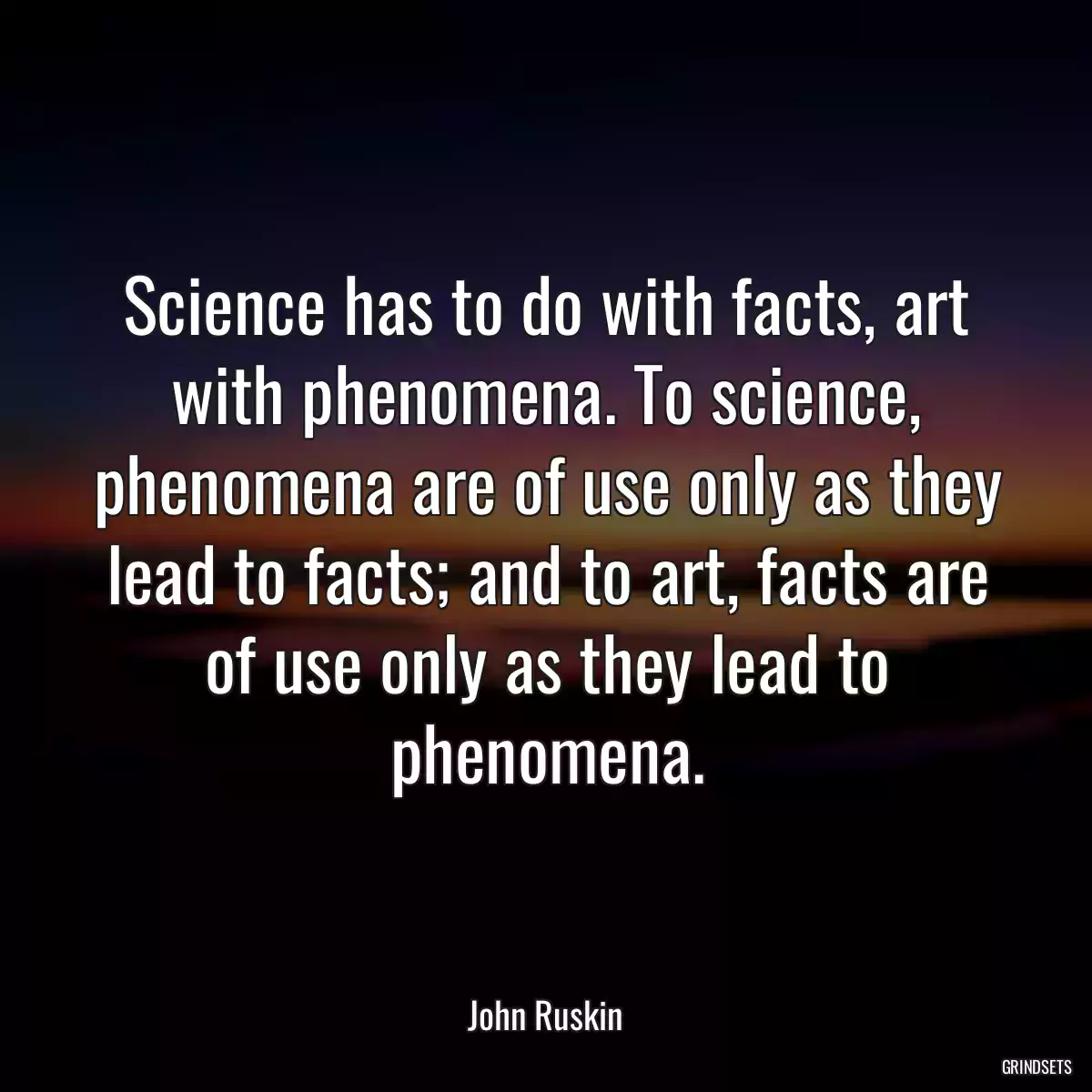
Quotes John Ruskin - page 2
Find dozens of John Ruskin with images to copy and share.

Architecture concerns itself only with those characters of an edifice which are above and beyond its common use.
I believe that there is no test of greatness in periods, nations or men more sure than the development, among them or in them, of a noble grotesque, and no test of comparative smallness or limitation, of one kind or another, more sure than the absence of grotesque invention, or incapability of understanding it.
Absolute ugliness is admitted as rarely as perfect beauty; but degrees of it more or less distinct are associated with whatever has the nature of death and sin, just as beauty is associated with what has the nature of virtue and of life.
You may also like
Greater completion marks the progress of art, absolute completion usually its decline.
Absolute and entire ugliness is rare.
Candlesticks and incense not being portable into the maintop, the sailor perceives these decorations to be, on the whole, inessential to a maintop mass. Sails must be set and cables bent, be it never so strict a saint's day; and it is found that no harm comes of it. Absolution on a lee-shore must be had of the breakers, it appears, if at all; and they give plenary and brief without listening to confession.
One of the prevailing sources of misery and crime is in the generally accepted assumption, that because things have been wrong a long time, it is impossible they will ever be right.
If you want to work for the kingdom of God, and to bring it, and enter into it, there is just one condition to be first accepted. You must enter into it as children, or not at all.

Quality is never an accident; it is always the result of high intention, sincere effort, intelligent direction and skillful execution; it represents the wise choice of many alternatives, the cumulative experience of many masters of craftsmanship. Quality also marks the search for an ideal after necessity has been satisfied and mere usefulness achieved.
Mountains are the beginning and the end of all natural scenery.
Mountains are to the rest of the body of the earth, what violent muscular action is to the body of man. The muscles and tendons of its anatomy are, in the mountain, brought out with force and convulsive energy, full of expression, passion, and strength.
The repose necessary to all beauty is repose, not of inanition, nor of luxury, nor of irresolution, but the repose of magnificent energy and being; in action, the calmness of trust and determination; in rest, the consciousness of duty accomplished and of victory won; and this repose and this felicity can take place as well in the midst of trial and tempest, as beside the waters of comfort.
I've seen the Rhine with younger wave, O'er every obstacle to rave. I see the Rhine in his native wild Is still a mighty mountain child.
Men say their pinnacles point to heaven. Why, so does every tree that buds, and every bird that rises as it sings. Men say their aisles are good for worship. Why, so is every mountain glen and rough sea-shore. But this they have of distinct and indisputable glory,--that their mighty walls were never raised, and never shall be, but by men who love and aid each other in their weakness.
Without mountains the air could not be purified, nor the flowing of the rivers sustained.
Science deals exclusively with things as they are in themselves; and art exclusively with things as they affect the human sense and human soul.
You may also like

Science studies the relations of things to each other: but art studies only their relations to man.